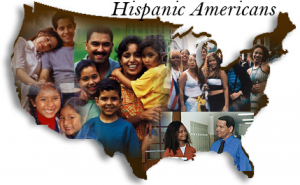Latinos: More Than Half U.S. Population Growth
 The Hispanic population in the U.S. accounted for more than half of the total population growth in the country outpacing other demographic groups, according to a U.S. Census Bureau brief released last week.
The Hispanic population in the U.S. accounted for more than half of the total population growth in the country outpacing other demographic groups, according to a U.S. Census Bureau brief released last week.
The Census brief, Hispanic Population: 2010, shows that the Hispanic population grew by 43 percent, or at a rate of four times faster than the rest of the U.S. Another finding was that Mexicans and Mexican Americans make up the largest Hispanic group nationwide and in 4o states.
The U.S. population increased by a total of 27.3 million from 2000 to 2010 and Hispanics accounted for 15.2 million.
The brief also lays out the distribution of Hispanics across the country. The Hispanic population has continued to remain concentrated in the same three states: California with 27.8 percent, Texas with 18.7 percent and Florida with 8.4 percent.
The South and the Midwest saw the most increased numbers of Hispanics. In the South, the Hispanic population grew by 57 percent, and the Midwest saw a jump by 49 percent.
In other trends within the Hispanic population, each of the following three groups surpassed the 1 million mark, Salvadorans, Dominicans and Guatemalans.
Puerto Ricans are the second largest Hispanic group at 9 percent and Cubans are the third accounting for 4 percent of the total Hispanic population.
In the report, the Census Bureau uses the terms “Latino” and “Hispanic” interchangeably to denote those citizens residing in the United States who define themselves as “of Latino, Hispanic, or Spanish” origin. Demographics of the Hispanic population are consequently based on the roots people identify as their own and not on their place of birth.
The information provided by the Census on Hispanics will be influential both for legislative redistricting and for deciding on the distribution of resources and services to each community based on its makeup and needs.
References:

